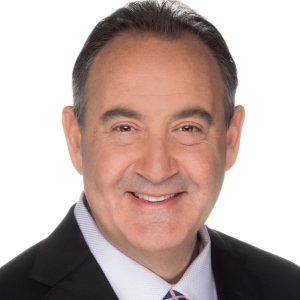Jonathan B. Perlin, MD, PhD, MSHA, MACP, FACMI, has made great strides during his time at The Joint Commission, where he’s defined a strategic plan to continuously improve health care for the public, while also inspiring healthcare organizations to excel in providing safe and effective care of the highest quality and value. We are thrilled that he will be joining us on the main stage at the 2023 Connect, being held September 27-29 at the Grand Hyatt Hotel in Nashville, Tennessee. We interviewed Perlin about his greatest priorities over the next year.
Which industry issues are your greatest priorities in the next year?
As we regain footing after the height of COVID-19, healthcare providers are struggling – particularly in the areas of workforce, finance, patient disposition and a polarized political environment.
Despite the convergence of these forces, we need to keep patient and community needs at the center of all we do and focus on the most pressing quality and safety issues. This is why, when I joined The Joint Commission in 2022, I announced my strategic priority areas to improve healthcare equity, environmental sustainability, workplace safety, and caregiver burden. That’s the “what” of our strategic agenda.
As to the “how,” we want healthcare organizations to find the value of improved outcomes in the accreditation process. We want accreditation to be evidence-based, data-driven and outcomes-oriented. By placing an emphasis on those things that are most meaningful and transformative, we can make the most impact. This is why The Joint Commission continues to eliminate standards that do not add value, are redundant or are not evidence-based. In January, 168 standards across accreditation programs were eliminated, followed by an additional reduction of more than 200 standards across accreditation programs in August. This leaves room for the things that matter most!
At the start of the year, The Joint Commission implemented new standards to reduce healthcare disparities. To further elevate the importance of these requirements, they became a National Patient Safety Goal on July 1. We also launched our Health Care Equity Certification Program, which recognizes and distinguishes healthcare organizations imbedding equity into all aspects of their care, operations and governance.
Environmental sustainability is both a health and health equity issue, as those least able to compensate for the effects of the environment are already burdened with adverse social determinants of health. Based on this and compelling evidence that healthcare represents 9% of the U.S. carbon footprint, The Joint Commission is taking a leadership role in environmental sustainability. We plan to announce the launch of voluntary requirements designed to encourage and celebrate organizations that make environmental sustainability improvements – and inspire others to do so, as well.
Additionally, as incidents of workplace violence in healthcare continue to rise, Joint Commission standards are foundational in helping healthcare organizations implement effective policies for a safe and respectful environment.
We commit to working closely with healthcare organizations across all settings to advance these priority areas. I encourage you to visit The Joint Commission website for complimentary resource centers on healthcare equity and workplace safety, as well as an upcoming resource center on sustainability in healthcare.
I look forward to engaging with inspiring leaders across the industry at Health Evolution Connect. Together, we can lead change to improve healthcare and make it safer and more equitable for all. I invite the Health Evolution community to share The Joint Commission’s vision – that all people always experience the safest, highest quality, best-value healthcare across all settings.











